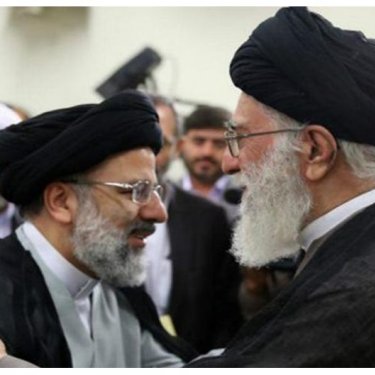Cleric accused of crimes against humanity to head Iran’s justice system

Reporters Without Borders (RSF) is appalled to learn that Ebrahim Raisi, a cleric accused of crimes against humanity, is to head Iran’s justice system for the next five years. His appointment by Supreme Leader Ali Khamenei on 7 March is an insult to his victims’ families and another blow to judicial independence, and will fuel the cycle of impunity.
A Khamenei protégé and former prosecutor general, Raisi had of late been special prosecutor of the court for clerics, which tries crimes by members of the clergy. He was a member of the feared commission appointed by Ayatollah Ruhollah Khomeini in 1988 that passed death sentences on thousands of political prisoners who refused to renounce their beliefs.
Because of these summary executions in the summer of 1988, many international human rights organizations and bodies and some UN special rapporteurs have said Raisi was responsible for crimes against humanity.
The late Ayatollah Hossein Ali Montazeri – one of the Islamic Revolution’s theoreticians and Khomeini’s onetime heir apparent – described the executions as “the most terrible crime to have been committed under the Islamic Republic” and, addressing the commission’s members, said: “It is you, sirs, who carried it out, and your names will be registered as criminals in Iran’s history.”
And yet now one of these “criminals” has been put in charge of Iran’s judicial system, a system in which most of the judges are regarded as guilty of corruption and other serious crimes.
Raisi’s judicial system colleagues include other regime thugs involved in the 1988 mass executions, such as Aboughasem Salevati, now head of the Tehran revolutionary court’s 15th chamber, and Mohammad Moghiseh, head of its 28th chamber. Interrogators and torturers at Evin and Hamadan prisons when the mass extrajudicial executions took place there in 1988, these two judges have passed heavy jail sentences on around 100 journalists and citizen-journalists since June 2009.
Javaid Rehman, the UN special rapporteur on the situation of human rights in Iran, who provided a very alarming assessment of the regime’s press freedom and human rights policies and practices in report presented last week, has not been allowed to visit Iran.
But a human rights report released by UN secretary-general António Guterres on 8 March revealed that representatives of the Office of the UN High Commissioner for Human Rights visited Iran in 2018. And Iranian officials now say they have invited the High Commissioner herself to make a visit.
“Iran is manoeuvring to suppress criticism by not allowing the UN special rapporteur to do an in-country investigation,” said Reza Moini, the head of RSF’s Iran desk. “The special rapporteur must be allowed to travel to Iran with High Commissioner for Human Rights Michelle Bachelet in order to observe the disastrous human rights and press freedom situation in a country that is one of the world’s five biggest jailers of journalists.”
RSF held a news conference in Paris on 7 February to reveal the scale of the lies that the Iranian regime has orchestrated about judicial persecution in Iran for decades – lies that were exposed by a leaked Iranian justice system file.
The day that Raisi’s appointment was announced, the justice system upheld the prison sentences of several members of the Sufi website Majzooban Noor, including Mohammad Sharifi Moghadam and Kasra Nouri, a member of its editorial committee, who were sentenced to 12 years in prison, and Sina Entesari, a citizen-journalist who was given a seven-year jail term.
Nasrin Sotoudeh, a human right lawyer who has defended journalists and citizen-journalists and was awarded the Sakharov Prize for Freedom of Thought in 2012, has meanwhile just been sentenced to a total of 33 years in prison on seven charges, including at least 10 years for “inciting debauchery” and 148 lashes by the Tehran revolutionary court’s 28th chamber.
Iran is ranked 164th out of 180 countries in RSF’s 2018 World Press Freedom Index



